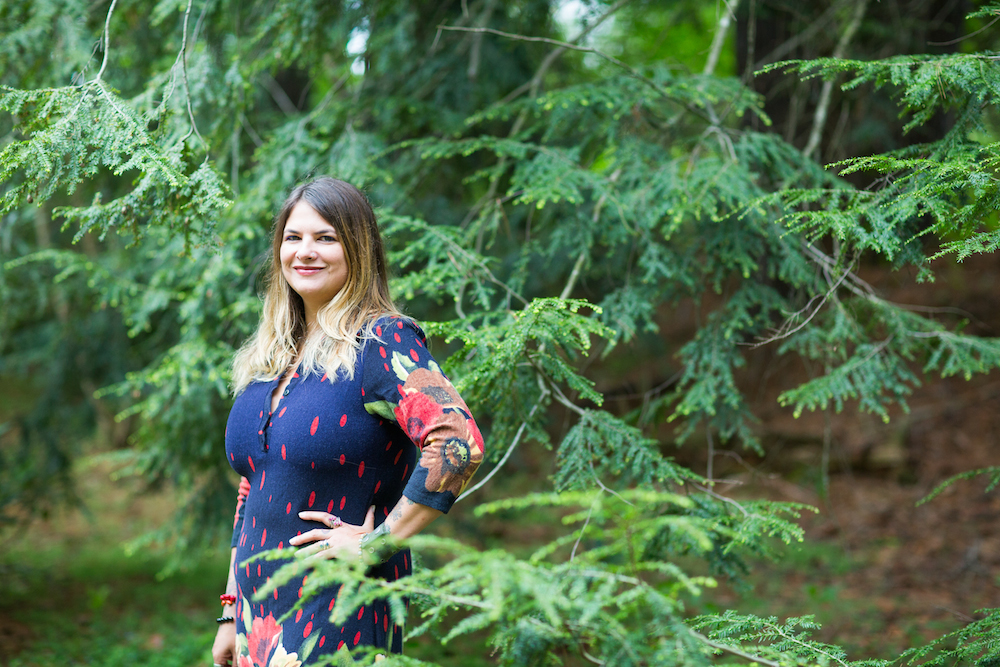Transplanted guild advocates for herbalists
If it sometimes seems as if everyone and her sister in Asheville is an aspiring herbalist, there’s a reason for that. Mimi Hernandez, executive director of the American Herbalists Guild, says that the nonprofit’s relocation to Asheville from Boston last year was largely due to the region’s resources and unusually high interest in herbalism. “This is definitely a hub for herbalism around the country,” says Hernandez. “I think No. 1 is the diversity of native plants that are in the wild here. And then we also have a lot of herbal educators in the area and mentors and herbal schools.”
This year marks the 25th anniversary of the AHG, which was founded in 1989 as a means to promote professionalism and education for clinical herbalists. The guild recognizes that, while there are many people interested in herbs, being a professional herbalist requires extensive training and apprenticeship. Unlike other occupations in alternative medicine, herbalism is an unlicensed profession, which means gaining credibility and recognition for nonacademic education like mentorships can prove difficult. In a place like Asheville, where a wide variety of herbal schools enables students to get “the most well-rounded herbal educations I know of,” says Hernandez, this challenge is not so great. However, other parts of the country still lack herbal education and access, something the AHG hopes to change.
Steven Horne, clinical herbalist and former president of the AHG, points to building the legitimacy and credibility of herbalism as another of the organization’s main goals.
“One of the objectives of the AHG is to help establish herbalism as a legitimate profession like acupuncture and massage therapy, to create guidelines to help herbalists be more professional. That was one of the major reasons why it was founded, and it also, of course, was a community for herbalists to come and work together, meet each other, share information and ideas,” Horne says. Horne is now responsible for organizing webinars on topics ranging from fertility to medicinal weeds. These webinars are available to professional members of the guild as well as the larger community.
However, the AHG doesn’t seek to establish herbalism as a licensed profession — which could further limit access to herbal health care. But it does aim to help herbalists gain credentials and encourage the growth of high-quality herbal practitioners. “It’s not a conventional educational path to become an herbalist,” explains Hernandez. “A lot of herbalists come from different backgrounds where they are trained traditionally. … They might be trained by family members, by grandparents, by other herbalists. For instance, I studied early on with the Amish community, and so how do I document that in a way that is credible?”
One means of attaining that credibility is by becoming a registered herbalist with AHG through a peer-reviewed process. The voluntary process isn’t required for professional herbalists, but its rigor makes it possible for highly trained herbalists to document their experience. Registration involves submitting an overview of educational hours and clinical experience, demonstrating consistency in writing case studies, the ability to identify around 150 herbs, letters of recommendation, community health care referrals and more.
“People who are professional members of the AHG really know their herbs,” says Horne. “Not just the typical kind of ideas that people might have, like chamomile is relaxing or saw palmetto is good for prostate health or things like that. That’s kind of a very surface-level understanding of herbal remedies. … That is just basic stuff, like telling someone to take an aspirin. Herbalism can be much, much more beneficial than that on numerous levels when you really understand how plants work and how to use them.”
The efficacy of herbal medicine is something that Lorna Mauney-Brodek has built her life’s work around. Mauney-Brodek is the founder of the Atlanta-based Herbalista Herb Bus — a mobile herb clinic — and the recipient of the 2013 AHG service award. She uses her herb bus to help underprivileged communities and has worked with the homeless population in Atlanta for years. Her herbalism cannot be separated from her activism, she says, and so it’s fitting that Mauney-Brodek sees yet another role for the AHG to fill — as an advocate and activist organization for herbalists.
“As the medical world in general is quite affluent — you’re talking about the pharmaceutical industry, the insurance industry — there is a lot of power there,” says Mauney-Brodek. “Now it’s about not just being able to share our resources together but to defend herbalists and defend the right of the people’s access to herbs.”
The AHG was instrumental in ensuring that the Food and Drug Administration did not regulate herbs in a way that would restrict herbalists’ ability to practice, Mauney-Brodek explains. For example, requiring expensive equipment to identify herbs would infringe on herbalists’ ability to make their own medicine. Smart regulations on natural products, keeping prices down and keeping herbal medicine accessible are all necessary to making sure herbalism remains the “people’s medicine,” she says, and the AHG plays a role in that.
Learn more about the AHG at americanherbalistsguild.com.




Before you comment
The comments section is here to provide a platform for civil dialogue on the issues we face together as a local community. Xpress is committed to offering this platform for all voices, but when the tone of the discussion gets nasty or strays off topic, we believe many people choose not to participate. Xpress editors are determined to moderate comments to ensure a constructive interchange is maintained. All comments judged not to be in keeping with the spirit of civil discourse will be removed and repeat violators will be banned. See here for our terms of service. Thank you for being part of this effort to promote respectful discussion.